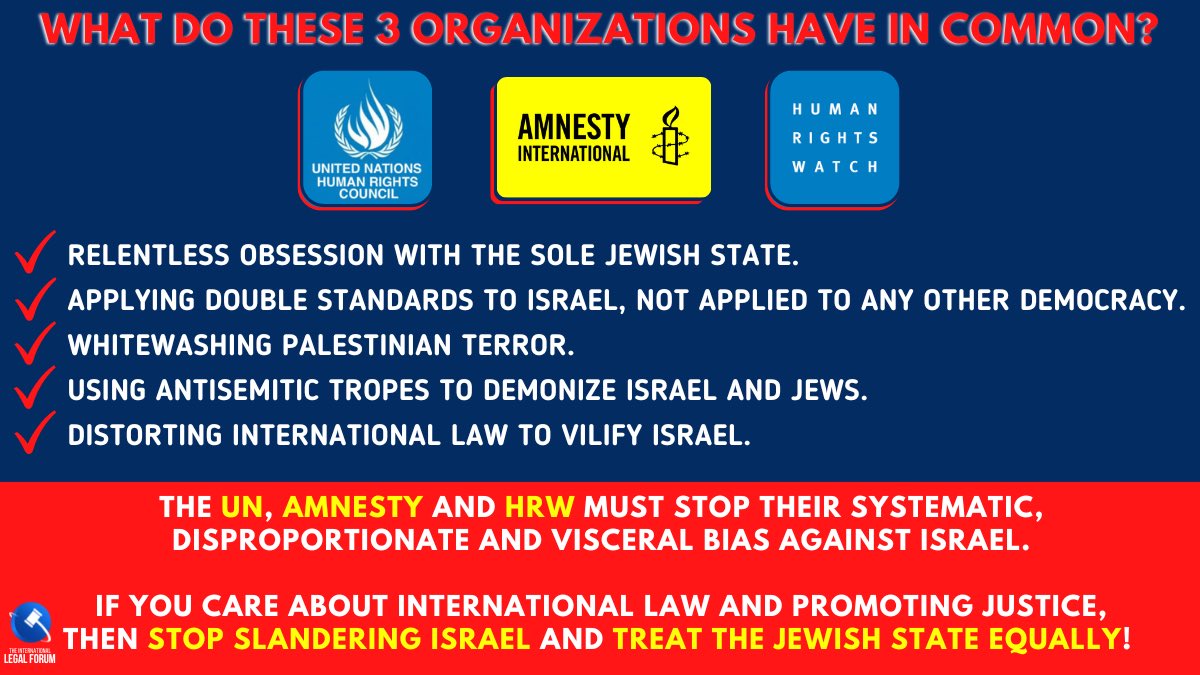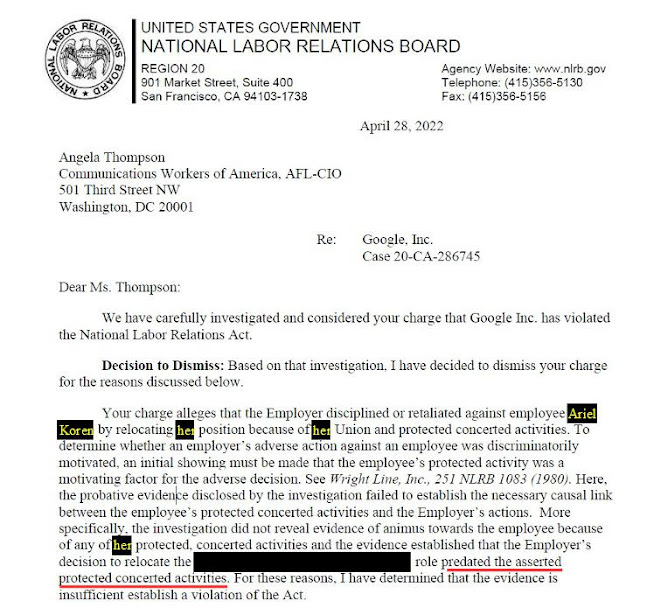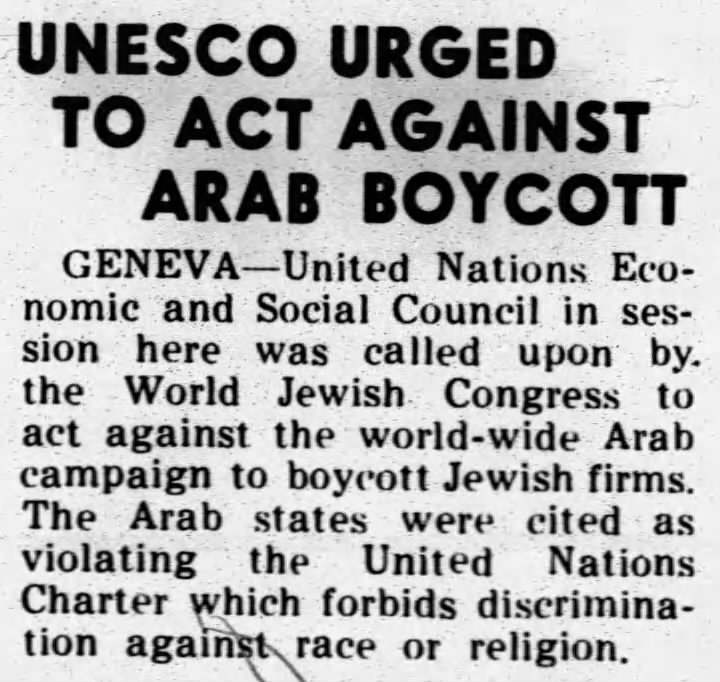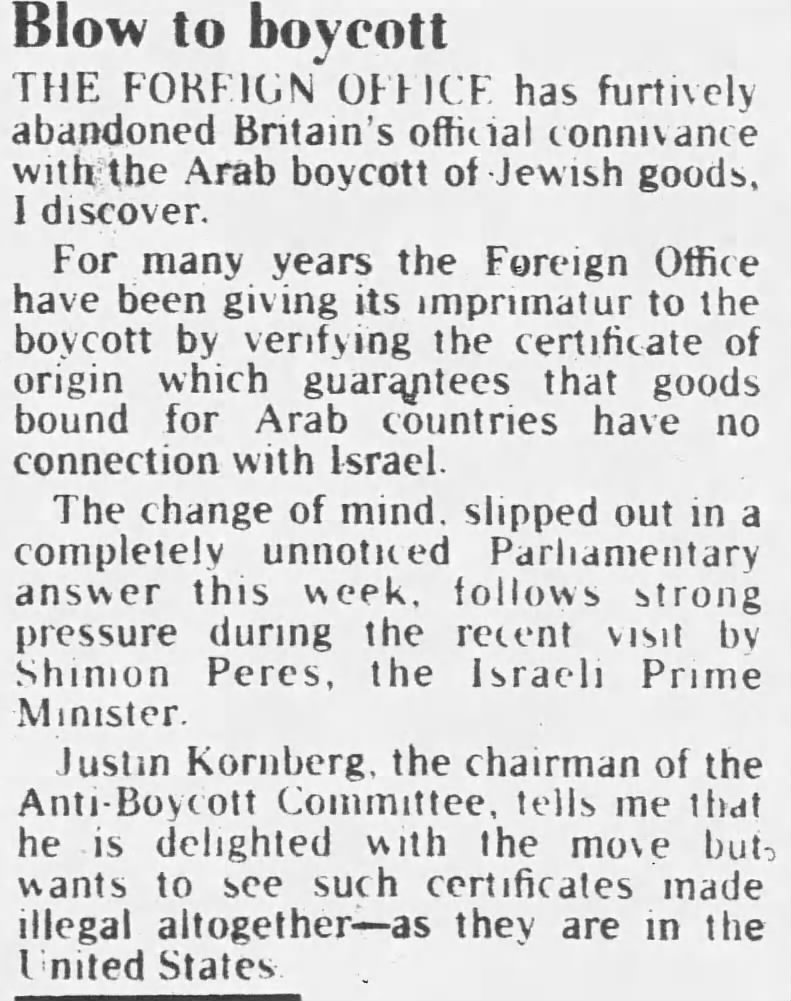By Daled Amos
From the time that Donald Trump won the election in 2016 -- and even before then -- there was nothing he did or said that was not open to criticism. After all, he had never held public office before and had no experience in government.
A similar criticism was applied to his son-in-law, Jared Kushner.
An online post on The National Review in 2020 called Kushner "a national disaster":
Perhaps the most stubbornly stuck-on piece of chewed gum on the White House walls has been Jared Kushner, the president’s son-in-law, who, it is always necessary to point out, had no experience in anything like government before being catapulted to one of the most important roles in the administration. [emphasis added]
This was in May. By September, Politico featured a post describing How Jared Kushner Proved His Critics Wrong:
It was assumed to be ridiculous that Trump had tapped the 39-year-old Kushner, not a diplomat or an expert in the region, for this role and assumed that everything he did afterward was ridiculous, if not nefarious.
Rarely has so much mockery been directed at an approach that, in the event, was methodical, creative, and ultimately achieved a breakthrough.
Kushner did not make peace between the Israelis and Palestinians, but no one else has, either. What he did was find a path for historic deals to normalize relations between Israel and the United Arab Emirates and Bahrain, with perhaps other Arab countries to follow. [emphasis added]
In his book Sledgehammer: How Breaking With The Past Brought Peace To The Middle East, David Friedman turns around the issue of experience back at the critics:
The US-Israel policy that existed when we took office was simply beyond repair. It was dominated by self-proclaimed experts with no real-world negotiating experience. [p. 8; emphasis added]
This problem of "experts" lacking the key skill of knowing how to negotiate has been an issue in the Iran deal as well.
Actually, the criticism about lacking expertise leveled at Kushner could easily be applied to Friedman as well. He himself readily points out that he was the first US ambassador to Israel with no previous diplomatic or government experience. [p. 49]
But while Kushner brought skills as a negotiator, Friedman was skilled as a lawyer and litigator. Many of the accomplishments of the Trump administration in the Middle East were a result of Friedman's knowledge of the law in general and his legal skills and ability to analyze a problem.
Friedman became the US ambassador to Israel on March 29, 2017 -- and hit the ground running.
He had a meeting in the State Department with the Office of the Legal Adviser -- and asked outright why the US did not recognize Jerusalem as the capital of Israel, as required by the Jerusalem Act of 1995. In response, he got a lecture on how that law was subject to a presidential waiver and was an option exercised by both Democratic and Republican presidents ever since the law was first enacted.
Friedman's response was to point out that they were wrong, that they failed to see a key distinction:
The Jerusalem Embassy Act permits the move of the embassy to be delayed by presidential waiver. But the recognition of Jerusalem is not waivable--it simply is declared in the statute. [p. 65; emphasis in original]
The State Department lawyers refused to agree, but it is unlikely they had ever had their legal arguments parried by an ambassador before.
And it was only the beginning.
In September 2017, Friedman "began to push the envelope on political issues." In a press interview, he referred to Israel's control of Judea and Samaria as an "alleged occupation." He followed this up with another interview where he said that the West Bank settlements were part of Israel -- based on the fact that the residents serve in the IDF, have Israeli citizenship and are considered Israeli by the government. [p. 90-91]
That month Friedman also visited the UN with Trump. Trump spoke to the General Assembly, and so did Abbas, threatening to prosecute Israelis at the International Criminal Court. When the issue came up the following month, Friedman pointed out that by encouraging the ICC to prosecute Israelis, Abbas went against the diplomacy that the Palestinian mission was supposed to be engaged in -- which was legal grounds for closing the mission.
Rather than push the point and jeopardize the political capital needed down the line to make recognition of Jerusalem as Israel's capital a reality, he sent a note to Secretary of State Rex Tillerson laying out the issue and saying he would abide by his decision. Tillerson started the process of setting the PLO mission on the path to closure. [p. 93-94]
By November 2017, the issue of official recognition of Jerusalem was on the front burner. Besides having to provide all the 'pro-recognition arguments' for a memo drawn up by the head of national security (the memo only contained the risks), Friedman also had to argue for recognition against Secretary of State Tillerson and National Security Advisor HR MacMaster in front of Trump. [p. 98-103]
He won the argument and the US officially recognized Jerusalem as the capital of Israel on December 6, 2017. In February, the State Department claimed, however, that actually moving the embassy from Tel Aviv to Jerusalem would take 10 years and cost a billion dollars. Friedman found a way to open the new embassy in 3 months at a cost of $150 thousand. Trump authorized $500,000 and the US embassy in Jerusalem opened on May 14, 2018 -- the 70th anniversary of Israel's independence. [p. 112]
Before May 14, 2018, the US Embassy was in Tel Aviv and the consulate (established in 1844) was in Jerusalem -- as a mission to the city rather than to the country as a whole. This made no sense once the state of Israel was established, and created conflicts since technically the US ambassador from Tel Aviv was out of his area of jurisdiction in Jerusalem, where he met with Israeli officials. On the other hand, the consulate administered to Jerusalem but did not have any responsibility for the US-Israel relations.
During the summer of 2018, with Mike Pompeo replacing Rex Tillerson as Secretary of State, Friedman pursued these finer points of having the US embassy located in Jerusalem. As a result, Pompeo announced on October 18, 2018:
I am pleased to announce that following the May 14 opening of the US Embassy to Israel in Jerusalem, we plan to achieve significant efficiencies and increase our effectiveness in merging US Embassy Jerusalem and US Consulate General Jerusalem into a single diplomatic mission. I have asked our Ambassador to Israel David Friedman to guide the merger. [p. 140-146]
The issue of Israeli sovereignty over the Golan Heights came up a couple of months earlier, in March 2018. It was an issue that Netanyahu was pushing. On the US side, national security advisor John Bolton raised the issue with Friedman, who saw it as an application of UN Security Council Resolution 242 entitling Israel to "secure and recognized borders," a framework which could then be extended to the Vision for Peace being worked on for Israel and the Palestinians. Friedman then raised the issue with Trump, who agreed with the idea. [p. 156-157]
By September 2019, with another round of deadlocked elections in Israel, Friedman addressed the State Department's use of the term "occupied territory." He writes that:
I was willing to go along with "disputed territory" or even "West Bank," but I wanted the nomenclature changed to eliminate the term "occupied." I argued that territory is "occupied" only when the party in control has no rights to the land except by reason of military conquest--and that was not the case here. [p.161]
According to Friedman, following the Six Day War, the captured territory was considered disputed. It was Carter, who saw settlements as an obstacle to peace, who had Herbert Hansell, the legal advisor to the State Department, issue a 4-page memo claiming that they were illegal.
In his book, Friedman lists "basic errors" in the Hansell Memo.
o It fails to acknowledge that Israel's legal right to the "West Bank" was confirmed by both The Balfour Declaration and San Remo Resolution and incorporated into the League of Nations resolutions that were the legal basis for restructuring the Middle East after the fall of the Ottoman Empire.
o Hansell claims Israel is a belligerent occupant in relation to Jordan, but fails to show how that is relevant when Jordan itself had no legal claim to the territory.
o He claims the settlements are the result of illegal "forced transfer" when in fact Israel did not force anyone to move.
o The memo also does not account for the fact that the Six Day War was a defensive war.
o Hansell does acknowledge that belligerent occupancy would no longer apply if the state of war would end between Israel and Jordan -- and it did, making the Hansell memo irrelevant.
For his part, Friedman asked a group of lawyers to provide support for the Trump administration's view that the West Bank was not occupied:
I'm asking the question because in the circumstances you have outlined, where legitimate arguments can be made on either side of an issue, I would think you would want to act at the direction of your client...
Guys, when Jimmy Carter wanted an opinion from his State Department legal adviser that settlements were illegal, he got it from Hansell. Not a dissertation on the various positions or an acknowledgement that things could go either way. He got a full-throated finding of illegality. Why isn't Mike Pompeo entitled to the same courtesy, assuming what he's asking for is intellectually honest?
Friedman is not making an obscure point.
Carter did not ask Hansell for a legal decision evaluating the different sides to the issue. What he asked for was legal justification for a position that had already been made by the Carter administration and given to Hansell to support.
Here is the beginning of the Hansell Memo:
Dear Chairmen Fraser and Hamilton:
Secretary Vance has asked me to reply to your request for a statement of legal considerations
underlying the United States view that the establishment of the Israeli civilian settlements in the
territories occupied by Israel is inconsistent with international law. Accordingly, I am approving the
following in response to that request. [emphasis added]
Friedman was asking for the same courtesy from the lawyers, that given the different sides to the issue, they should support the position of the administration.
And that is what he got. On November 19, 2019, Pompeo announced:
After carefully studying all sides of the legal debate, this administration agrees with President Reagan. The establishment of Israeli civilian settlements in the West Bank is not per se inconsistent with international law.
By saying the settlements were not per se illegal, the door was left open that individual settlements may be open to "local competing claims," but as a whole, the settlements were disputed, not occupied. [p. 161-165]
Earlier, in August 2019, Ilhan Omar and Rashida Tlaib announced their plan to visit "Palestine" -- a plan that the Israeli government resisted facilitating, because of their plans to exploit the trip against Israel. Israel had passed a law a year earlier, prohibiting tourists from advocating boycotts or sanctions against the country.
Friedman explains the nature of Israel's law:
Nothing prevented Israelis or Palestinians from engaging in this activity--the law simply prohibited foreigners from advocating boycotts of Israel on Israeli soil.
Many liberal Americans were opposed to this law. They argued that principles of free speech were paramount in balancing the issues. This argument missed the point. Israelis and Palestinians had free speech. But Israel had the right to control its borders and had no moral obligation to facilitate visits for those who sought Israeli's destruction. [p. 168; emphasis added]
When Friedman got a copy of the planned itinerary of Omar and Tlaib's trip, he saw that the visit was entitled "US Congressional Delegation to Palestine" and that the visit was focused exclusively on the West Bank with no meetings with Jews.
He considered this as crossing a line regarding US law and policy:
Not because it's my business who Israel lets into its borders, but because here were two isolated members of Congress seeking to establish a new foreign policy of the United States. The United States did not recognize a state or even a place called Palestine, and this end run around our policies and our values should not be tolerated.
The decision of what to do was Israel's to make, and Israel decided the visit violated Israeli law. When the decision was announced and there was an uproar in response, Friedman released a statement, which read in part:
The Boycott, Divestment and Sanctions (BDS) movement against Israel is not free speech. Rather, it is no less than economic warfare designed to delegitimize and ultimately destroy the Jewish State. Israel properly has enacted laws to bar entry of BDS activists under the circumstances present here, and it has every right to protect its borders against those activists in the same manner as it would bar entrants with more conventional weapons.
...the Tlaib/Omar Delegation has limited its exposure to tours organized by the most strident of BDS activists. This trip, pure and simple, is nothing more than an effort to fuel the BDS engine that Congresswomen Tlaib and Omar so vigorously support.
Like the United States, Israel is a nation of laws. We support Israel’s application of its laws in this case.
By October 2020, one of the last things that Friedman wanted to accomplish was recognition by the State Department that US citizens born in Jerusalem would be recognized as having been born in Israel, and have that fact reflected in their passports. While it seemed a natural outgrowth of US recognition of Jerusalem as the capital of Israel, the State Department -- then still under the direction of Rex Tillerson -- blocked such a move.
But Mike Pompeo, on the other hand, was supportive -- but asked Friedman to work with the Legal Advisor to the State Department, the same office that had supported Tillerson in blocking the passport change. Friedman wrote a lengthy legal analysis showing that recognition had created a legal certainty that Jerusalem was in Israel. But the State Department lawyers responded that Jerusalem remained a final status issue. He offered a compromise, where US citizens born in Jerusalem had the choice to list Israel as their place of birth while retaining the option to list Jerusalem instead. With Pompeo's help, this was found acceptable. [p. 223-224]
As Trump's term started to draw to a close, Friedman addressed 3 bilateral agreements between the US and Israel -- and the "dirty little secret in the State Department." These agreements, The Binational Science Foundation, the Binational Industrial Research & Development Foundation, and the Binational Agricultural Research & Development Fund all contained the same limitation:
Projects financed by the Fund may not be conducted in geographic areas which came under the Administration of the Government of Israel after June 5, 1967, and may not relate to subjects primarily pertinent to such areas. [emphasis added]
In other words, the US government was officially boycotting research and development projects it was conducting with Israel in the West Bank. Fixing the problem required dealing again with lawyers was well as several government agencies and their insistence that no amendment could be made to the agreements without renegotiating them -- despite the fact that all that was at stake was deleting the one sentence.
Friedman arranged a special signing ceremony with Netanyahu at Ariel University for October 27, where the amending of the agreements would be formalized --
And I informed everyone involved that the necessary, and only the necessary, approvals must be obtained prior to October 27 or I would inform the secretary of state of all those who stood in the way of the ceremony and contributed to a diplomatic embarrassment. [p.225-226]
Problem solved.
One last problem addressed in November 2020 centered on how products made in the West Bank were labeled. Before the Oslo Accords, under US law such products could be labeled "MADE IN ISRAEL" -- but afterward, the labeling had to specify "WEST BANK," including products made in Area C, which were under Israeli control.
Friedman discussed the issue with the head of US Customs and Border Protection, whose main focus is avoiding confusion, rather than getting into geopolitics:
I explained to them that the term "West Bank" was itself misleading, as a product emanating from that area could be made under the authority of the Palestinian Authority, Hamas, or the State of Israel. You can't get more confusing than that!
They came to an agreement where the labels would specify "Gaza" for the Gaza Strip, "West Bank" for the territory in Judea and Samaria controlled by the PA and "Israel" for the areas under Israeli control. [p.227-228].
Reading about the various issues that Ambassador Friedman focused on and was able to resolve, it is hard to believe that someone without legal training could have pinpointed the key points and pushed the legal arguments necessary. It would not have been enough to be pro-Israel. The proof is the fact that these issues were not resolved by the experienced US diplomats who preceded David Friedman. It also helped that he was not content with the status quo and was determined -- with Trump's backing -- to make necessary changes.
Friedman's knowledge and abilities as a lawyer helped, just as Jared Kushner's background and negotiating skills helped bring about the Abraham Accords.
But that is a different book.
|
 Buy the EoZ book, PROTOCOLS: Exposing Modern Antisemitism today at Amazon! Buy the EoZ book, PROTOCOLS: Exposing Modern Antisemitism today at Amazon!
Or order from your favorite bookseller, using ISBN 9798985708424.
Read all about it here!
|

|





















































